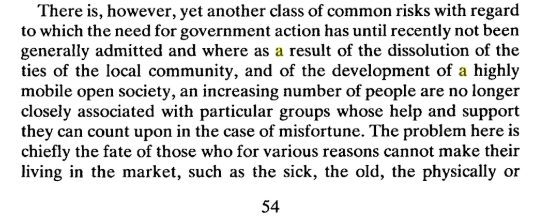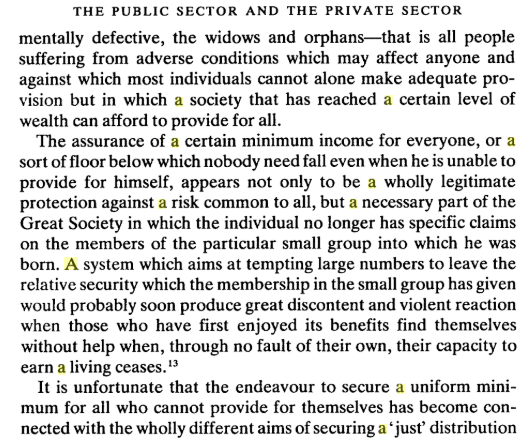Jeff Should Go to More Bible Sessions
One of the biggest stories this week was the Trump Administration (because Sessions said it and then Sarah Sanders endorsed the general principle without saying she knew his exact words) stance that Romans 13 justifies the policy of separating children from their parents who have entered the country illegally (and even those seeking asylum though it gets nuanced on this part). Here’s Sessions:
Here are some of my thoughts on this:
==> Why is Sessions chuckling throughout the whole thing? I haven’t watched much footage from him before. Is this just how he talks? If not, is this nervous laughter? On the face of it, it looks like not only is he justifying the policy of separating children from parents who are not dangerous criminals, but he thinks it’s no big whoop, and that the religious people criticizing the policy are being silly gooses.
==> The agnostics who are freaking out about Sessions setting up a theocracy are being obtuse. He wasn’t saying, “We are proposing this policy because of Romans 13.” Rather, he was saying, “This is our policy, it makes total sense, and for those of you objecting from a Biblical perspective, let me use your own source against you.”
==> Even when I agree with their overall position, I can’t stand the way liberals on major TV handled this. E.g. an anchor on an MSNBC show stood up and read from an actual Bible (from the gospel of Matthew I believe), and during the segment the ticker on the bottom of the screen flashed something like, “Sessions uses Bible verse that justified slavery.” At the risk of being cliched: THIS IS WHY TRUMP WON, guys.
==> I have been trying to pin down the exact policy and whether it truly is new. The point of the present post is to talk about the theology. But if you want to zoom in on the truth, try reading this Vox piece and this National Review piece. They both kinda sorta agree on what’s actually happening right now, and that it is indeed different from what happened under Obama, but the interpretation is (naturally) very different. (Incidentally, in July 2016 the NYT criticized the Obama Administration for keeping entire families–intact–in detention facilities.)
==> Here’s the opening of Romans 13:
1Let every person be subject to the governing authorities. For there is no authority except from God, and those that exist have been instituted by God. 2Therefore whoever resists the authorities resists what God has appointed, and those who resist will incur judgment. 3For rulers are not a terror to good conduct, but to bad. Would you have no fear of the one who is in authority? Then do what is good, and you will receive his approval, 4for he is God’s servant for your good. But if you do wrong, be afraid, for he does not bear the sword in vain. For he is the servant of God, an avenger who carries out God’s wrath on the wrongdoer. 5Therefore one must be in subjection, not only to avoid God’s wrath but also for the sake of conscience. 6For because of this you also pay taxes, for the authorities are ministers of God, attending to this very thing. 7Pay to all what is owed to them: taxes to whom taxes are owed, revenue to whom revenue is owed, respect to whom respect is owed, honor to whom honor is owed.
==> Naturally, Romans 13 is very difficult to swallow from a libertarian perspective. However, it’s hard to swallow, period. It doesn’t seem to jibe with Paul’s own life, or the life of Jesus for that matter. This guy spells out the huge (apparent) problem. I’ve written on this here, here, and here.
==> The standard Christian libertarian take on this is to say that Romans 13 obviously doesn’t mean everybody should obey any government rule whatsoever.
==> Yet I think just about everybody (except Hannah Cox who made a somewhat similar point on social media) is missing the main problem here. We aren’t arguing over whether people should break U.S. immigration law. The question is, what should U.S. government officials do to them when they get caught? Romans 13 doesn’t give guidance to rulers on how to set tax rates, or what to do with a horse thief. Rather, Paul is telling fellow Christians (who at that time are living under the jurisdiction of secular rulers) that they shouldn’t make trouble. So when some Christians are saying to members of the Trump Administration, “We think you are punishing these admitted lawbreakers too harshly,” it’s a total non sequitur to cite Romans 13.
==> Let me try this another way. When the Trump Administration started to rollback the Clean Power Plan, or repealed portions of Dodd-Frank, or reduced various tax rates significantly, would it have made any sense for Nancy Pelosi to object, “Whoa! How can you tweak what the authorities were doing under the previous administration? Don’t you know God put Obama in office to execute justice?”
Of course not. Even if you thought Romans 13 was correct on the plain-sense reading, such a hypothetical move by Nancy Pelosi wouldn’t make sense. We are discussing what the government’s policy ought to be. And once we frame it that way, yes, I think a Christian really should be sympathetic to the notion that even lawbreakers should be shown mercy. That’s one of the main planks of Christianity.
Potpourri
==> I’m somewhat embarrassed to say that I don’t think I was very familiar with the apparently famous “Stanford prison experiment,” but my ignorance has been validated because the whole thing was a fraud. (In contrast, I always filed away Milgram’s obedience experiment as my go-to scientific confirmation of whatever political science point I wanted to make in an argument…)
==> Speaking of conformity: all the cool kids are listening to the latest episode of the Lara-Murphy Show, where we warn about the dangers of letting policy loans ride without paying them down.
For the Purposes of the Current Debate, I Don’t Think Hayek Supported a “Basic Income Guarantee”
This is an old Matt Zwolinski post from 2013, but they have resurrected it on social media (presumably because of its relevance to the ongoing policy debate). (Zwolinski in turn linked to his case for a BIG a few weeks before.) But I think it’s fundamentally wrong.
The post is titled, “Why Did Hayek Support a Basic Income?” And yes, there’s this quote: “a certain minimum income for everyone…a sort of floor below which nobody need fall even when he is unable to provide for himself.”
But if you look at the book, here’s the context of Hayek’s quote:
So you see, Hayek says in several places that he has in mind people who are unable to support themselves getting enough help from the government in order not to starve to death.
We already have this in the United States. The people pushing a BIG want to overturn the system that Hayek is supporting above. They want EVERYBODY, including Bill Gates, to get a (gross) check from the government. It is not need-based. That is one of the points in its favor, according to proponents of BIG.
Anyway, Zwolinski linked to a fantastic Jim Manzi piece critiquing both a negative income tax but also a BIG (implicitly).
Raimondo on Korea
Now admittedly there is an element of “I told you so!” to this essay, but Justin Raimondo’s analysis on North Korea is also very optimistic. Remember, the Chinese leadership realized hardcore communism wasn’t working, and began serious liberalization. It’s not ludicrous to think Kim wants the same, if he can figure out how to achieve it without getting ousted/killed.
Justin also alludes to the video they showed Kim before the meeting. Check this thing out:
Potpourri
==> Medicare apparently is in some sort of financial trouble. (And remember when I did my impression of Paul Ryan and offered a proposal to let people opt out of Social Security that wouldn’t cost the government any money.)
==> I liked this Justin Raimondo take on the pundits falling onto their swooning couches over the G7 meetings.
==> The scintillating conclusion of my 3-part series on Oren Cass’s testimony on climate change damages. For real, this is cool stuff.
==> A provocative Dan McCarthy column on Trump displacing the libertarian moment.
==> Some more awkward FBI texts. Fortunately the IG says it didn’t affect any professional work.
==> Another example of someone taking the free-trade defense of trade deficits over the cliff into absurdity. I try to walk the guy back from the edge but he’s proud of his result, so it might not take.
Were Grateful
Michael Malice has moved his podcast “YOUR [sic] WELCOME” to the Gas Digital Network, and Episode #3 is what podcasts were designed for: It takes the libertarian (for purists, anarcho-capitalist) expert on North Korea (Malice) and puts him into a conversation with the comic strip expert on Donald Trump (Scott Adams).
I am being dead serious, this is the single most insightful analysis I’ve heard of the Korea summit. Early on Malice says something like, “Trump gave Kim permission to do the right thing, by being paternal without being paternalistic.” I was noticing the same thing. The way Trump praises Kim (who looks like a young boy trying not to show he’s afraid to the cameras), when everybody else is literally screaming bloody murder, was giving me that vibe too, but Malice articulated it better than I had done.
Even if you hate Trump’s guts, you should listen to this interview. I’m not saying they have the whole story, but this is definitely an important aspect of the story, and moreover one that just about everybody else is totally missing.
Murphy Interviewed by Mance Rayder
This is mostly standard stuff probably for a lot of you, but we do get into some nuances that you might like. We mostly talk economics, just a little an-cap stuff.
This Is Your Economics on TDS
When Trump says China is killing us on trade, free-market economists are quick to point out that there are positive-sum games.
When pundits speculate on the impact of certain events, free-market economists often point to the stock market as the best aggregator of expert opinion.
Now US defense stocks are down… Even so, because North Korea says it benefited from the Trump-Kim meeting, Scott Sumner concludes that “Yep, Kim won.”
(In fairness, over at EconLog Sumner gives a more balanced assessment.)









Recent Comments